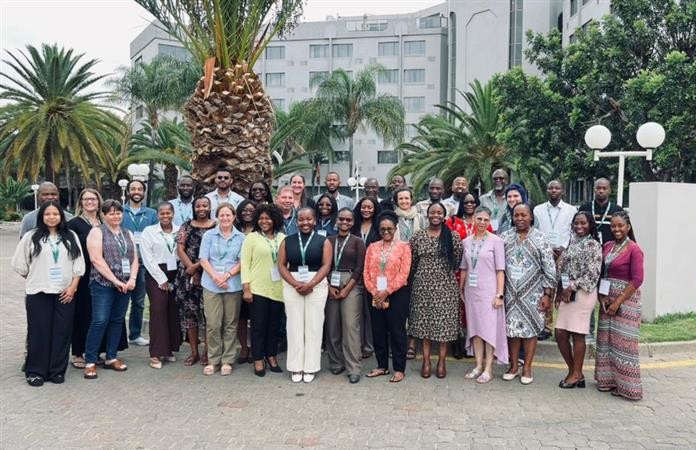
Staring on 3 of November 2025, in Windhoek, Namibia, the Regional Workshop on Advancing the Identification and Application of Key Areas for Biodiversity (KBA) in Southern Africa, is under way bringing together experts from four countries (South Africa, Malawi, Mozambique and Namibia) to strengthen regional collaboration and technical capacities in the identification and management of Key Biodiversity Areas (KBAs).
The meeting, which runs from 3 to 6 November, is organised by the South African National Biodiversity Institute (SANBI), the Namibian Ministry of Environment, Forestry and Tourism (MEFT) and BirdLife South Africa, as part of the regional Spatial Biodiversity Assessment, Prioritisation and Planning (SBAPP) project, funded by the Agence Française de Développement (AFD) and the Fonds Français pour l'Environnement Mondial (FFEM).
The event has more than 40 participants attending, from the four countries involved, and includes practical sessions on applying the global KBA standard, discussions on integrating KBAs into national conservation strategies, and sharing lessons learned among partner countries.
Mozambique is represented by Érica Tovela, from the Maputo Natural History Museum, Acácio Chechene, and Rafaela Macuácua, representing the Wildlife Conservation Society (WCS).
During the workshop, Mozambican representatives shared their country's experiences in applying Red Lists of Species and Ecosystems and identifying KBAs, also presenting the ongoing work to identify new KBAs by collecting new scientific data. Mozambique also presented its experience with the National Coordination Group (NCG), which has played a key role in reviewing data, prioritizing areas and integrating results. These contributions are part of the overall objectives of the meeting, which aim to promote a common understanding of the role of KBAs in biodiversity conservation and strengthen regional cooperation among participating countries.
Mozambique's participation in this workshop represents an opportunity to strengthen technical capacities and consolidate national work on the identification and management of Key Biodiversity Areas, contributing to the achievement of the Kunming-Montreal Global Biodiversity Framework targets and to the strengthening of regional cooperation on conservation.